Dead Stars Gleaming Through the Night by Anna Clark

The small god tears across the universe like time might break. Their being hinges on an axiom: outpace light; see the past. They push until their form is gaseous and all the worlds become one bright luminary ahead, but it’s too little, too slow. When they look back, their star remains dark.
The small god can’t bear it. They resolve to petition the necromancer of stars.
In the manner of forbidden things, every deity knows how to reach the necromancer: want so hard that want becomes a force, find absolute zero, and be prepared to pay. Emphasis on the last. Worth it.
Down the deep channels of space they wind, grief forging a course through competing gravities and fatigue. They think of their star, now a hard remnant; they know its position no matter which way they turn. They think of its light, ghosting for eyes not theirs. They break and break like an unstable isotope. When finally they catch a gelid current, they surrender without relief, floating to a deep, black hollow in everything from which darkness effuses in blinding rays.
ASK, comes the command.
The necromancer speaks in shades of celestial winter, an impossible cold adjacent to death. The small god reaches for numbness but hits a further level of heartbreak.
My star has gone out, they say. Bring it back, please.
WHY?
Because some things shouldn’t end before others. I nursed my star into being from gas and dust and darkness. It’s not fair that gods should outlast their worlds.
IT WILL COST YOU.
I accept.
BRING ME THE HEAT OF ANOTHER STAR, GIVEN FREELY.
All of it? asks the small god.
HOWEVER MUCH FOR HOWEVER LONG YOU WISH YOUR STAR TO BURN.
The small god first tries a galaxy of giants, whirlpooling incandescent blue and promising the heat of eons. They sink, trembling, down a spiral arm—and are blocked by a greater god, vast enough to be many things to many worlds.
I’ve seen shivering gods before, says the Breath and Moon and Ocean (to some). You come from the necromancer. Move on.
The small god moves on as far as grief allows, which is only to the next bright cluster. They shiver piteously, and are turned away. Again, again, again. With every “no,” they look out to the little, yawning dark place where their purpose once shone, and the cold bites deeper. That other bodies keep shining seems a betrayal. They retreat to a region sparse of stars, and there, they meet the stellar outcast.
Tumbling through the void as if blown by an astral wind, the star is more desolate than anything they’ve seen. The gravity of loneliness takes hold; without ever meaning to, the small god falls into spin beside it.
How are you here? asks the small god.
The stellar outcast tells them its story: how it used to be twins in a system, gambolling about a galaxy, watched by a permissive god; how the two of them danced too close to the black hole, and one was captured and the other flung to the empty beyond; how its god had to choose, and picked the twin. Now it’s all alone.
I’m sorry, says the small god.
But what about the god, the stellar outcast wants to know.
I had a beautiful little star, one I’d never abandon. I saw it born and I saw it die, and that isn’t right.
The stellar outcast agrees.
The necromancer will bring it back, but I need the heat of another.
If the god might visit, suggests the stellar outcast, it will gladly gift some heat—a half-lifespan’s worth, which should sustain a slighter star for many epochs.
Even shrouded in sorrow, the small god recognises the imbalance. They would forego their capacity for joy—had it remained—to again see a twinkle at the heart of their universe. They would forego everything. This is a quark on the scales.
I’ll come back, they promise. You won’t be alone again.
Heat means nothing in the bitter hollow. The small god proffers their torch. Darkness gulps.
THE SECOND PRICE IS YOUR LOVE OF YOUR STAR, says the necromancer. YOU WILL NEVER UNDERSTAND WHY YOU WISHED IT RAISED. YOU WILL FEEL NOTHING FOR ITS EXISTENCE.
I still accept, says the small god, because grief is hunger and addiction, and only the impossible will satisfy.
IT’S DONE.
There’s no flash, no moment of relief. The small god looks out across the universe. If one more star shines in the expanse, they can’t find it.
They drift off, massless, to the stellar outcast, nurturing a hollow ringing where once they knew loss.
Epochs pass; joy rekindles. The stellar outcast, beautiful violet and big as ten of the little star they recall so dispassionately, doesn’t show its sacrifice in the beginning. For a span, it brightens, and the small god beams beside it.
When they think of before, of the distant time they raced light for the chance to look back and see a ghost, they feel bafflement. It has all the resonance of a dream. So they spin and love with abandon, and no concept of “after.” The two make plans. Set a course for a new galaxy. Shine.
Bloat hits the stellar outcast suddenly. Its core burns fever-hot, and out, out, out it grows. Bathed in radiation, the small god is terribly cold. They hastened this. The universe handed them an orphan, and they halved its life to raise another. Be prepared to pay.
Violet becomes blue, becomes white, becomes red. Then shrinking sets in.
Stay with me, urges the small god. Stay together.
But their adopted sun can hold together no longer, and blows apart in a spectral flower of gold and zinc, dust and gas.
The small god tears through the cosmos, pushing until their form is gaseous and all the worlds become one bright luminary ahead. But light is faster. When they glance behind, there’s a hole in the stars.

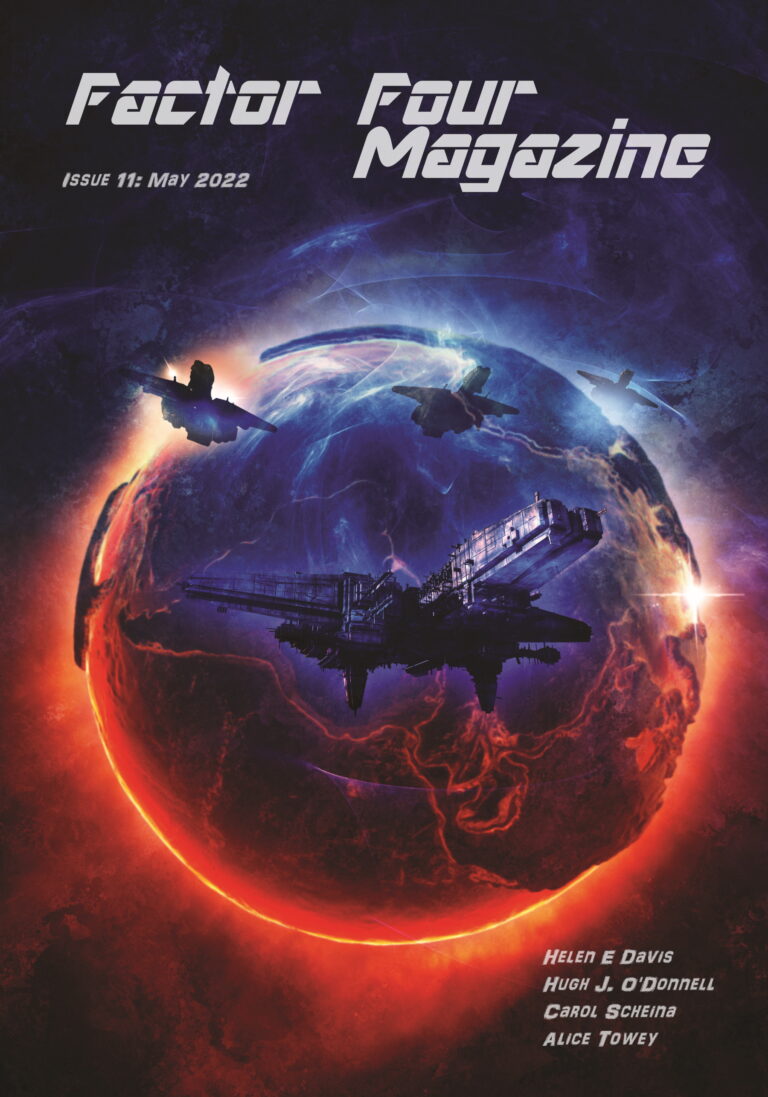
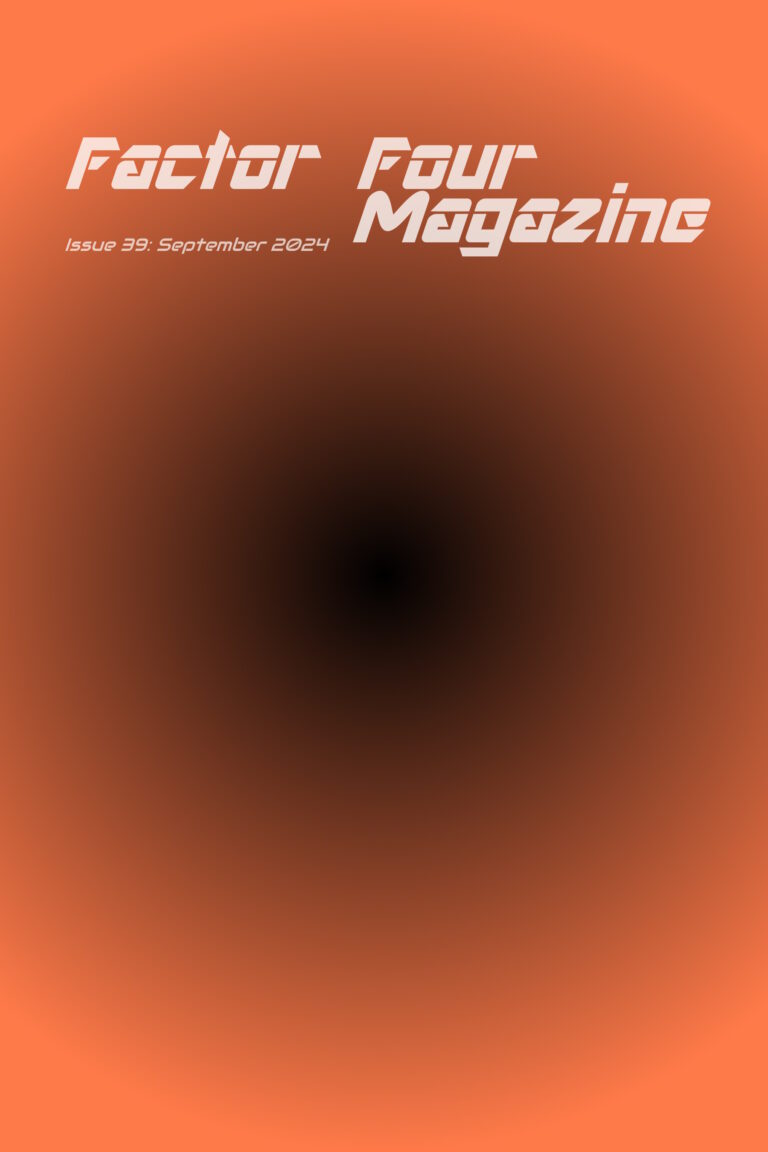

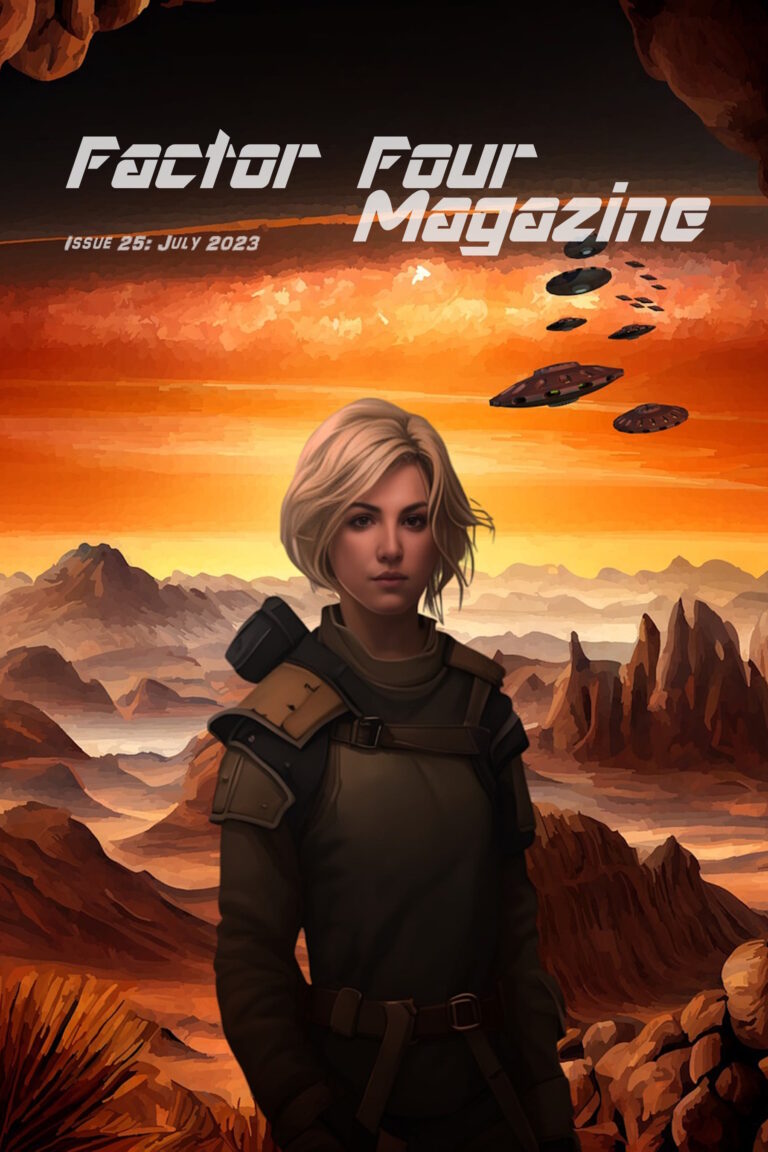
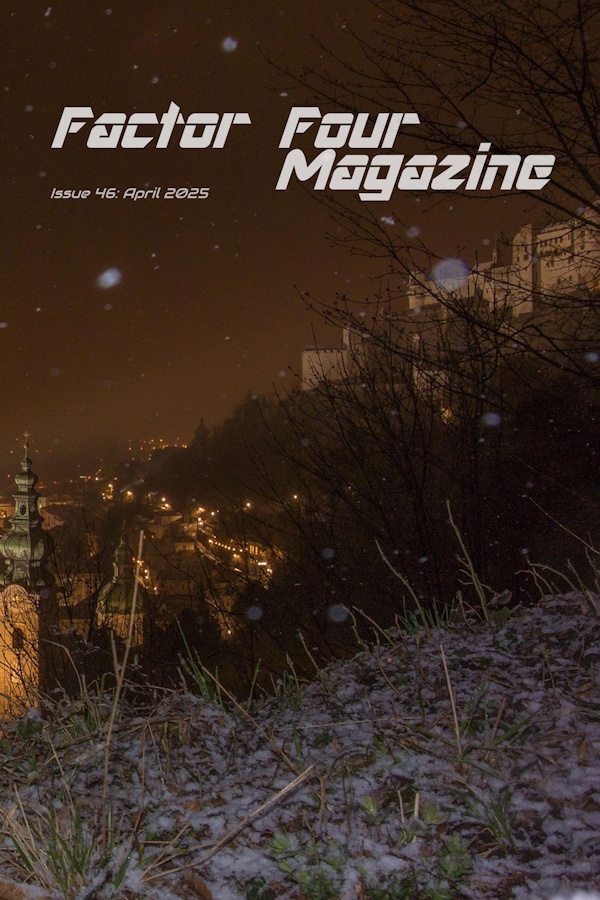
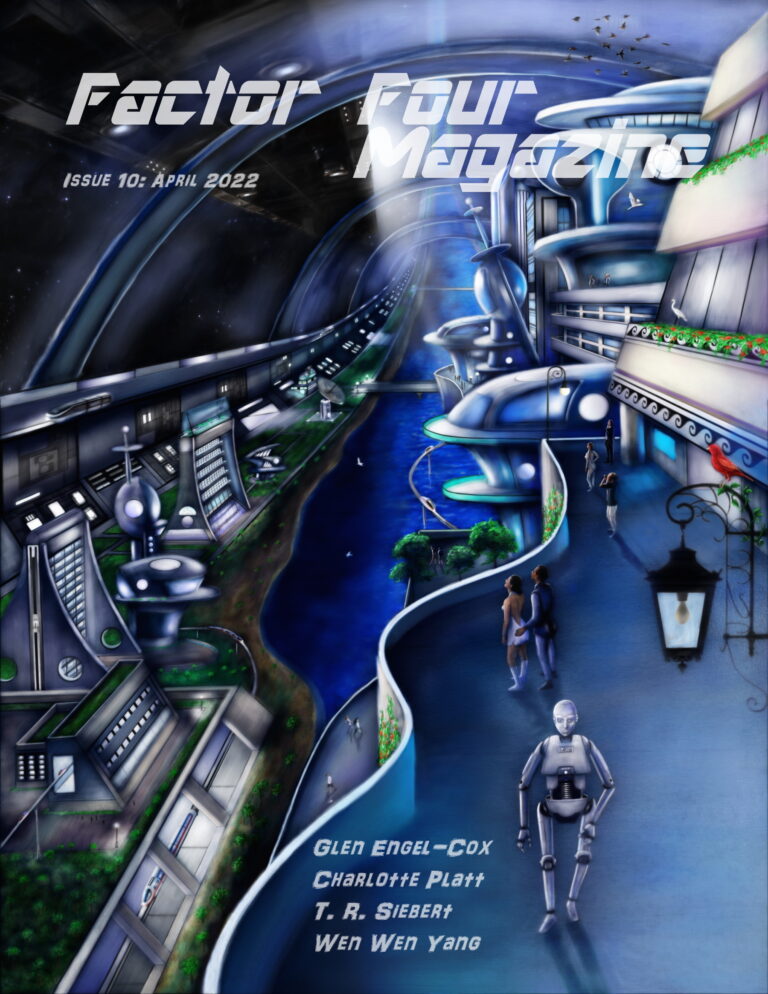
Hauntingly beautiful. What a treat!